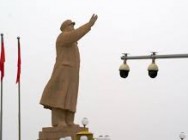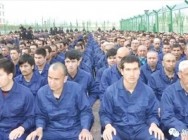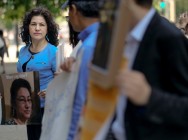Last Minute

- Conflict and Alliance: The US and China: A Centennial Dance: A Century of Relationship from 1900 to 2024
- CHINA RELATIONSEAST TURKESTAN PROBLEM AND TURKEY
- FRONTLINE China Undercover
- Elimination of “Uyghur Counter-Revolutionary Officials” in Academic Fields—Exact Quotes Translated from a Mandarin Audio File
- In Push for Trade Deal, Trump Administration Shelves Sanctions Over China’s Crackdown on Uighurs
- Dalai Lama’s 60th Anniversary Symposium: İlshat Hassan speech in English and Chinese
- Uyghur Detainees from Xinjiang ‘Placed in Nearly Every Prison’ in Shandong Province
- Shahrezad Ghayrat, Unrepresented Women
- Uighur Americans Speak Against China’s Internment Camps. Their Relatives Disappear.
- Rozinisa: The true story of the Uyghur girls in the prison

-

Conflict and Alliance: The US and China: A Centennial Dance: A Century of Relationship from 1900 to 2024
-

CHINA RELATIONSEAST TURKESTAN PROBLEM AND TURKEY
-

FRONTLINE China Undercover
-

Elimination of “Uyghur Counter-Revolutionary Officials” in Academic Fields—Exact Quotes Translated from a Mandarin Audio File
-

In Push for Trade Deal, Trump Administration Shelves Sanctions Over China’s Crackdown on Uighurs
-

Dalai Lama’s 60th Anniversary Symposium: İlshat Hassan speech in English and Chinese
Chinese Jailers Abuse Uyghur Inmate For Not Speaking Mandarin
Prison authorities in a southern prefecture of China’s far-western Xinjiang region physically abused a Uyghur petitioner while he was serving a three-year jail term for “illegal petitioning,” knocking out three of his teeth because they believed he intentionally refused to read and speak Mandarin Chinese, the prisoner said.
Ghojimemet Abdujappar, 52, had served a three-year sentence at a detention facility in Hotan (Hetian, in Chinese) prefecture because he and some family members traveled to Beijing in May 2010 to complain to central government authorities and foreign diplomats about inadequate compensation for the confiscation of his land.
After the group visited the United Nations’ office and the U.S., British and German embassies, police took them to the Xinjiang region’s administrative offices in the capital before sending them back home.
After Abdujappar returned to Hotan, authorities arrested and jailed him for three years for illegal petitioning.
The prison guards beat and kicked him because they believed he could read and understand spoken Mandarin Chinese, although his language abilities were poor, he told RFA’s Uyghur Service last week from Manglay town in Qaraqash (Moyu) county, where he is under house arrest in a rented dwelling.
“My mistake was that I couldn’t read the regulations of the detention center in Mandarin Chinese, because I never went to a Chinese school,” he said, adding that authorities believe he was faking.
“They said, ‘You could go Beijing without a translator and complain about your situation to the central government, so how is it that you cannot read the regulations of detention center?’” he said.
Abdujappar said he had translated his documents into Chinese from the Uyghur language at a translation center and used a translator when he arrived in Beijing. Uyghur is a Central Asian language in the same family as Turkish and has no relation to Chinese.
“But the guards still pushed me to speak Chinese,” he said.
At first when he was detained, he counted aloud from one to 10 in Chinese in front of prison authorities to show that his language skills were poor, he said.
One Han Chinese guard asked Abdujappar why he was lying to them about his ability to understand and speak Chinese, but yet traveled to Beijing to petition, he said.
“How could you have you been in front of a foreign embassy in Beijing?” the guard asked Abdujappar, before punching him in the mouth. While Abdujappar was on the ground, another Han Chinese guard kicked him the face, he said.
“In the beginning, I was wondering why these people hated me so much and why they treated me so inhumanely, although there was no personal animosity between us,” he said.
But Abdujappar added that he was aware that the guards could keep their jobs only if they treated prisoners ruthlessly.
Petitioning against an injustice
Abdujappar’s grievance against local authorities began in 2008 when they confiscated his house and farmland to make way for a government office without paying him fair compensation, he said.
“I wasn’t against it, but I should have been compensated fairly, because I had to buy another house and more land to continue my life,” he said. “My request was so simple, but it was rejected.”
When Abdujappar and his three brothers and one sister traveled to Beijing to petition authorities about the situation two years later, they expected central government officials to believe them and take up their case. But instead, the authorities called the police to transfer the Uyghurs to the Xinjiang region’s administrative office in Beijing.
Three months later, authorities in Hotan jailed Abdujappar and his brothers on sentences of one to three years for illegal petitioning, he said. His sister was held in detention for 48 days, then released without being charged.
Mettursun Yasin, the chief of the village where Abdujappar’s family is from, told RFA that he was at the Hotan Middle Court when the four men were sentenced.
“Ghojimemet Abdujappar was so healthy, and his teeth were [intact],” Yasin said. “He did not have a criminal background except for his continuous petitioning.”
Higher-up authorities had ordered village officials to compensate Abdujappar very well, Yasin said, but the village was so poor that it did not have any sources of income or bank savings.
“The higher-up authorities must pay him properly instead of transferring the case to us,” Yasim said.
The mostly Muslim Uyghurs have complained about pervasive ethnic discrimination, religious repression, and cultural suppression and other injustices by Chinese authorities under its series of “strike hard” campaigns in Xinjiang in the name of fighting separatism, religious extremism and terrorism. Authorities are quick to quell all forms of dissent, including petitioning.
Reported by Shohret Hoshur for RFA’s Uhyghur Service. Translated by Shohret Hoshur. Written in English by Roseanne Gerin.
http://www.rfa.org/english/news/uyghur/chinese-jailers-abuse-uyghur-inmate-for-not-speaking-mandarin-01202016171741.html
RELATED NEWS












